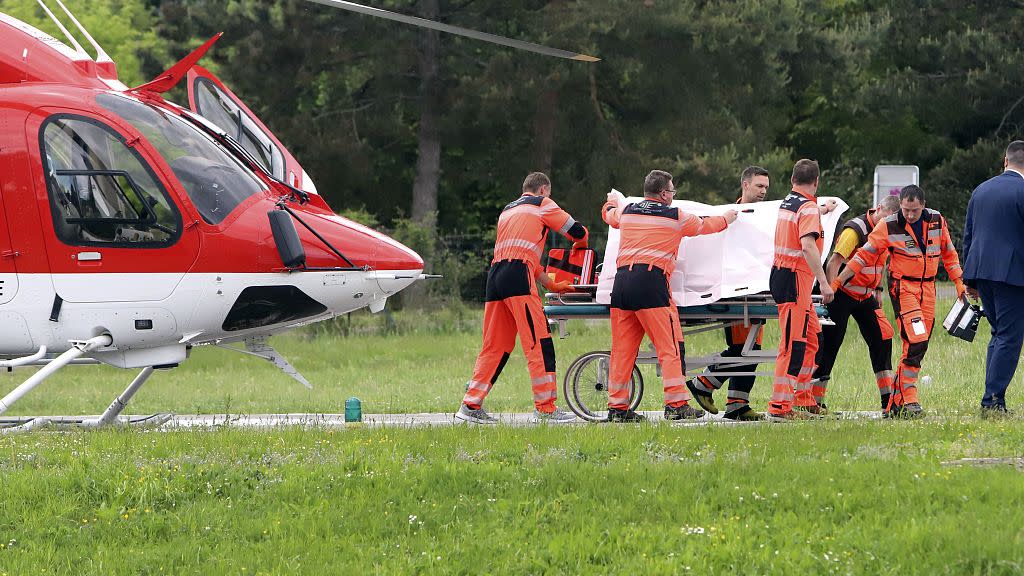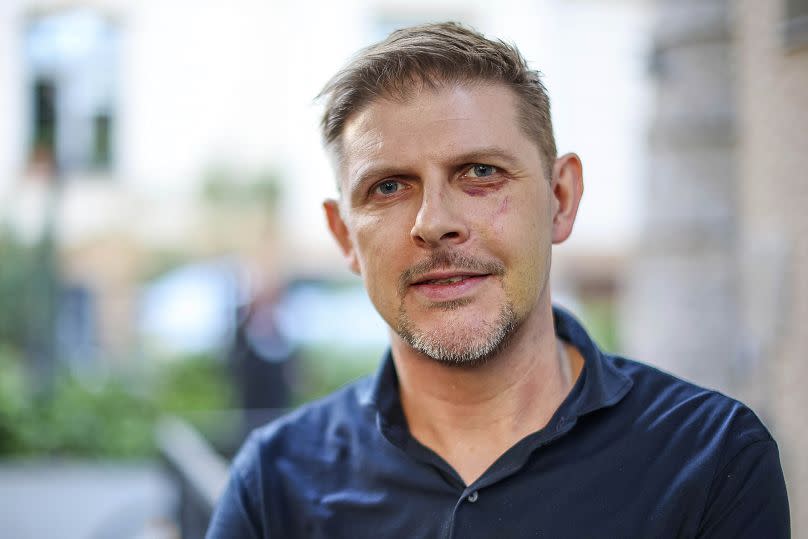Political violence is on the rise in EU, driven by extremism and disillusionment

The shooting of Slovakian Prime Minister Robert Fico is an example of the more serious acts of political violence in parts of the European Union.
It was the first attempt on the life of a European head of state since 2003, and reflects a growing polarisation across the continent.
Eric Maurice, researcher at the European Policy Centre, said there are numerous factors behind the discontent.
''It's true that on the one hand, we can see in the election results a rise in the extremes, in the radical forces, on both the right and the left, with an increasingly uninhibited political language, in verbal violence, in ad hominem attacks in political debate too. And then a radicalisation, a polarisation of society and a difficulty in debating with political adversaries who often become enemies,'' he said.

According to German federal police statistics, 22 people have been attacked in the country since the start of the year, including Social Democrat Member of the European Parliament Matthias Ecke.
The candidate for Chancellor Olaf Scholz’s centre-left party in next month’s election for the European Parliament was attacked while putting up posters in the eastern city of Dresden earlier this month.
The party said he was taken to a hospital and required surgery for his injuries.
Both government and opposition parties say their members and supporters have faced a wave of physical and verbal attacks in recent months and have called for greater protection for politicians and election rallies.
German police figures show physical or verbal violence against elected representatives has almost doubled in the past five years - 2,790 incidents were recorded in 2023.
The French Interior Ministry recorded 2,265 complaints or reports of violence in 2022, an increase of 32 percent compared to 2021.
The trend continued in 2023 with some 2,380 attacks reported in the first three-quarters of the year.
Maurice said social conditions were contributing to the increasingly hostile atmosphere.
''Why are so many people susceptible to disinformation or conspiracy theories, for example? It's because they no longer trust the authorities. That's a very complex question," he said.
''There's the feeling of vulnerability, there's the fact that they don't feel considered by the authorities. It may be their personal economic situation, it may be their personal situation in terms of things that are much more intimate, but which translate into a distrust of the human race and the authorities,'' he added.
He said the fear of becoming the target of violence could discourage European citizens from getting involved in politics or standing for re-election.

 Yahoo News
Yahoo News 
